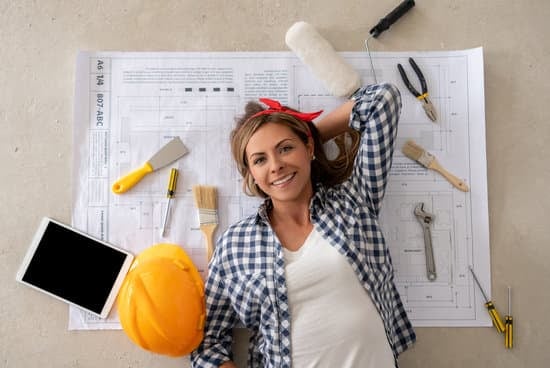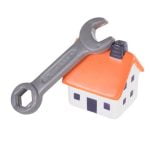Homeowners often strive to improve their properties for various reasons, one of which is increasing its value. Whether looking to sell or refinance, understanding the impact of home improvements on appraisal values is crucial. Appraisals play a vital role in determining the worth of a property, and certain enhancements can significantly influence these valuations. By knowing which improvements hold the most weight, homeowners can strategically invest in upgrades that will boost their home’s appraisal value.
When it comes to buying or refinancing a home, accurate property valuations are essential. This is where home appraisals come into play. A home appraisal is an unbiased assessment of a property’s market value conducted by a licensed appraiser. The valuation takes into account numerous factors such as location, size, condition, and recent sales of comparable properties in the area.
The key question for homeowners looking to increase their home’s appraisal value is: what improvements make the most significant impact? When strategically planned and executed, certain updates have the potential to significantly boost an appraisal.
These renovations focus on various areas including curb appeal enhancements, interior renovations, energy-efficient upgrades, addressing structural issues, integrating smart home technology, and more. Understanding how each improvement category can positively influence appraisal values allows homeowners to make informed decisions on where to allocate their resources.
Importance of Home Appraisals
Home appraisals play a critical role in the real estate industry, providing accurate property valuations that are essential for various purposes. Whether it’s for buying or selling a home, refinancing a mortgage, or obtaining a loan, an accurate appraisal is necessary to determine the fair market value of a property. This section will delve into the importance of home appraisals and why accurate property valuations are crucial.
Ensuring Fair Transactions
One of the primary reasons for getting a home appraisal is to ensure fair transactions between buyers and sellers. In any real estate transaction, it is important that both parties feel confident that they’re paying or receiving a fair price for the property based on its true value. An appraisal provides an impartial evaluation of the property’s worth and helps prevent any potential disputes or misunderstandings between buyers and sellers.
Protecting Lenders
Lenders also rely heavily on home appraisals to protect their investments. When people apply for mortgages or loans using their homes as collateral, lenders need to assess the property’s value to ensure they are not lending more money than the home is worth. Appraisals help mitigate risks by providing lenders with accurate information about the property’s value and acting as reassurance that their investment is secure.
Making Informed Financial Decisions
Homeowners also benefit from accurate property valuations when making financial decisions related to their homes. Whether it’s deciding to refinance a mortgage, take out a home equity loan, or invest in renovations, homeowners need to understand their property’s current market value. An appraisal can provide homeowners with valuable insights into how much equity they have in their homes and help them make informed decisions about tapping into that equity.
Factors That Influence Home Appraisal Values
When it comes to determining the value of a home, there are numerous factors that appraisers take into consideration. Understanding these factors can help homeowners make informed decisions on how to increase their home’s appraisal value. Here is a comprehensive overview of the key factors that influence home appraisal values:
- Location: The location of a home plays a crucial role in its appraisal value. Factors such as proximity to amenities, quality of schools, and neighborhood safety can significantly impact the value of a property. Homes located in desirable neighborhoods or areas with high demand tend to have higher appraisal values.
- Size and layout: The size and layout of a home are important considerations for appraisers. The total square footage, number of bedrooms and bathrooms, as well as the overall flow and functionality of the floor plan, are assessed to determine the value of a property.
- Condition: The condition of a home is another vital factor that influences its appraisal value. Appraisers assess both the exterior and interior condition, looking for any signs of wear or damage. Homes in well-maintained condition typically have higher appraisal values compared to those in need of repairs or updates.
- Upgrades and renovations: Improvements made to a property can have a significant impact on its appraisal value. Upgrades such as kitchen remodels, bathroom renovations, and energy-efficient installations can often result in higher appraisals. It is important for homeowners to keep track of any improvements made to their property and provide this information to the appraiser during the valuation process.
- Comparable sales: Appraisers use comparable sales, also known as comps, as an important reference point when determining the value of a home. They analyze recent sales data for similar properties in the area to assess how your home compares in terms of price per square foot, amenities, condition, location, and other relevant factors.
By understanding these key factors that influence home appraisal values, homeowners can make informed decisions when it comes to improving their property. Whether it’s focusing on curb appeal enhancements, interior renovations, energy-efficient upgrades, addressing structural issues, or incorporating smart home technology, strategic updates can help maximize a home’s appraisal value. Being aware of the importance of these factors can empower homeowners to take appropriate steps to increase their home’s worth in the real estate market.
Strategic Updates That Boost Home Appraisal Values
Making strategic updates to your home can significantly increase its appraisal value. When it comes to boosting your home’s appraisal value, there are certain improvements that are more effective than others. In this section, we will unveil the top improvements that can help enhance the appraisal value of your home.
Kitchen Remodel
The kitchen is often considered the heart of the home and is a major selling point for potential buyers. A well-designed and updated kitchen can have a significant impact on your home’s appraisal value. Consider upgrading outdated appliances, installing new countertops and cabinets, and adding modern fixtures to give your kitchen a fresh and appealing look.
Bathroom Renovation
Similar to the kitchen, bathrooms play a crucial role in determining the value of your home. Upgrading your bathrooms can bring a high return on investment in terms of appraisal value. Focus on improving key elements such as fixtures, vanities, flooring, and lighting. Adding features like a walk-in shower or a soaking tub can also make a big difference in increasing the overall appeal and value of the property.
Home Energy Efficiency Upgrades
In today’s environmentally conscious world, energy efficiency is highly valued by homeowners and appraisers alike. Making energy-efficient upgrades not only reduces utility costs but also enhances the overall value of your home during an appraisal. Consider installing energy-efficient windows, adding insulation to walls and attics, upgrading HVAC systems with energy-efficient units, or even installing solar panels.
By focusing on these strategic updates in your home, you can significantly boost its appraisal value. However, it’s important to consider factors such as location, market trends, and budget before diving into any renovation projects. It may be beneficial to consult with a real estate professional or an experienced appraiser who can provide guidance specific to your property and local market conditions.
Curb Appeal Enhancements
Exterior upgrades play a crucial role in boosting the appraisal value of a home. Curb appeal, or the first impression that a property makes from the outside, is highly valued by potential buyers and appraisers alike. This section will explore the various curb appeal enhancements that can have a significant impact on the appraisal process.
One of the most effective ways to improve curb appeal is through landscaping. A well-maintained lawn, colorful plants and flowers, and neatly trimmed hedges can greatly enhance the overall appearance of a property. According to studies, landscaping improvements can increase a home’s value by as much as 10%. Moreover, mature trees in the yard also add value to a property due to their aesthetic appeal and environmental benefits.
Another exterior upgrade that can significantly impact home appraisal values is updating the exterior siding or façade of a home. Inspectors and appraisers take note of any signs of wear and tear or outdated materials. Upgrading to more modern materials such as brick veneer or fiber cement siding can help maximize appraisal values. Additionally, adding architectural features like shutters, window boxes, or a covered porch can improve both visual appeal and functionality.
Lastly, another key element that influences curb appeal is the condition of the roof. A well-maintained roof not only adds value to a property but also protects it from weather damage or structural issues. Appraisers consider factors such as age, material quality, and overall condition when evaluating roofs for appraisals. If needed, replacing an old roof with newer materials like asphalt shingles or metal can greatly boost appraisal values.
| Curb Appeal Enhancements | Impact on Appraisal Values |
|---|---|
| Landscaping improvements | Increase home value by up to 10% |
| Updating exterior siding or façade | Maximize appraisal values, modernize the look of the property |
| Roof maintenance and replacement | Add value, protect the property, improve overall condition |
Interior Renovations
Interior renovations play a crucial role in increasing home appraisal values. When it comes to appraising a property, the quality and condition of the interior spaces are significant factors that appraisers consider. This section will highlight various sub-topics related to interior renovations and how they can unlock the potential for higher home appraisal values.
The Importance of Kitchen Renovations
The kitchen is often considered the heart of a home, and as such, it holds significant value when it comes to home appraisals. Upgrading the kitchen can have a substantial impact on the overall appraisal value. Features such as modern appliances, high-quality countertops, and updated cabinetry are key elements that can impress an appraiser. Furthermore, incorporating energy-efficient features like LED lighting or eco-friendly appliances can also contribute to a higher appraisal value.
Bathroom Upgrades That Make a Difference
Bathrooms are another important area that homeowners should focus on when considering interior renovations. The presence of updated fixtures, such as stylish sinks, faucets, and showers, adds value to the home. Additionally, installing features like heated flooring or a spa-like bathtub can significantly increase the appeal of a bathroom during an appraisal.
Enhancing Living Spaces
Making improvements to living areas such as family rooms or living rooms can also positively impact home appraisal values. Creating open floor plans by removing non-load-bearing walls can give an illusion of more space and improve functionality. Additionally, upgrading flooring materials with hardwood or luxury vinyl planks can provide a modern and polished look that increases appraisal value. Attention should also be given to aspects like paint color choices, which should be neutral and appealing to potential buyers.
These are just a few examples of how interior renovations can unlock the potential for higher home appraisal values. When planning these upgrades, it’s essential for homeowners to consult with professionals who have experience in maximizing the value of a property during the appraisal process. By investing in strategic interior renovations, homeowners can increase their chances of obtaining a higher appraisal value and ultimately get a better return on their investment.
Energy-Efficient Upgrades
In today’s world, sustainability and energy efficiency are becoming increasingly important considerations for homeowners. Not only are these upgrades beneficial for the environment, but they can also have a significant impact on home appraisal values. Making energy-efficient upgrades to your home not only reduces your carbon footprint, but it can also increase its value in the eyes of appraisers and potential buyers.
One of the most effective ways to improve energy efficiency is by upgrading your windows. By replacing old, single-pane windows with double or triple-pane windows that have low-emissivity coatings, you can significantly reduce heat loss during the winter and keep cool air inside during the summer. Additionally, properly sealed and insulated windows help reduce drafts and noise pollution, adding to the overall comfort of your home.
Another energy-efficient upgrade that can boost your home’s appraisal value is installing solar panels. Solar energy offers numerous benefits, including reduced electricity bills and a smaller environmental impact. Appraisers take into consideration the potential savings on utility costs when determining the value of a home with solar panels. This means that not only will you be saving money on electricity as a homeowner, but you may also see an increase in your home’s appraisal value.
Making improvements to your heating and cooling systems is another effective way to enhance energy efficiency and increase your home’s appraisal value. Replacing outdated systems with high-efficiency models can make a significant difference in both comfort levels and energy consumption. Additionally, programmable thermostats allow homeowners to customize their heating and cooling schedules based on their needs, ensuring optimal energy usage throughout the day.
In summary, implementing energy-efficient upgrades in your home not only benefits the environment but also increases its overall value. Whether it be through window replacements, solar panel installations, or updating heating and cooling systems, these initiatives demonstrate your commitment to sustainability while enhancing comfort levels and potentially saving money on utility bills. By investing in energy-efficient upgrades, you not only improve the functionality of your home but also its market appeal and potential appraisal value.
Addressing Structural Issues
Structural issues can have a significant impact on the appraisal value of a home. If a property has structural problems, it can not only affect its overall condition and functionality but also decrease its worth in the eyes of an appraiser. Therefore, addressing these issues through repairs and renovations is crucial in maximizing the appraisal value of a home.
One important aspect to consider when dealing with structural issues is the foundation. A strong and stable foundation is essential for any home, as it provides support and stability to the entire structure. If there are cracks, settlement, or any other signs of foundation problems, it is important to address them promptly. Hiring a professional foundation repair company to assess and fix any issues can help ensure that the home maintains its value and improves its appraisal rating.
In addition to the foundation, other structural elements such as the roof, walls, and flooring should be inspected for any damage or deterioration. Leaking roofs or damaged walls not only compromise the integrity of the structure but also detract from its aesthetic appeal. By making necessary repairs or replacements to these components, homeowners can increase their home’s appraisal value significantly.
| Structural Issues | Impact on Appraisal Value |
|---|---|
| Foundation problems | Negative impact; decreases overall value |
| Damaged roof | Negative impact; potential water damage concerns; decreases value |
| Cracked or damaged walls | Negative impact; affects aesthetics and overall appeal; decreases value |
| Deteriorated flooring | Negative impact; suggests lack of maintenance; decreases value |
Taking on structural repairs and renovations can be a significant investment for homeowners. However, by addressing these issues, they not only increase the appraisal value of their home but also enhance its overall durability and functionality. It is advisable to consult with professionals such as contractors or structural engineers when assessing and planning for structural improvements, ensuring that the work is done correctly and in compliance with local building codes.
Smart Home Technology
The advancement of technology has made a significant impact on various aspects of our lives, including the real estate industry. One area where technology is revolutionizing homes is through the incorporation of smart home technology. Smart home technology refers to the integration of devices and systems that can be controlled remotely through a smartphone or other internet-connected devices. This section will explore how smart home technology can increase appraisal values and appeal to potential buyers.
One way that smart home technology contributes to increasing appraisal values is by enhancing the security of a property. Smart security systems such as doorbell cameras, surveillance cameras, and motion sensors provide homeowners with peace of mind knowing that their property is protected.
These systems allow users to monitor their homes remotely, receive instant alerts in case of any unusual activity, and even contact authorities if necessary. When appraisers consider the security features of a property, having a state-of-the-art smart security system can boost its value.
In addition to security, energy efficiency is another aspect that appraisers take into account when determining the value of a home. Smart thermostats are one example of how homeowners can improve their energy efficiency through smart home technology.
These thermostats learn homeowners’ schedules and preferences and automatically adjust the temperature accordingly, leading to energy savings over time. By showcasing this type of advanced energy management system during an appraisal, homeowners can demonstrate their commitment to sustainability and potentially increase their property’s value.
Smart home technology also has the potential to enhance convenience and functionality within a home. Features such as smart lighting systems, automated window treatments, voice-controlled appliances, and integrated entertainment systems create a more seamless living experience for residents. Appraisers recognize the added value that these conveniences bring to a property, as they contribute to improved comfort and daily living experiences.
Navigating the Appraisal Process
The appraisal process can be a crucial step in determining the value of your home. Whether you are looking to sell your house or refinance your mortgage, understanding how the appraisal process works can help you maximize your home’s appraisal value. Here are some tips and insights for homeowners to navigate the appraisal process effectively:
- Prepare your home: Before the appraiser arrives, it is essential to ensure that your home is in its best possible condition. Clean and declutter all rooms, repair any visible damages, and make sure all systems are in good working order. Improving your home’s curb appeal by maintaining the exterior can also leave a positive impression on the appraiser.
- Research local market conditions: Familiarize yourself with the recent sale prices of similar homes in your neighborhood. This will give you an idea of what price range to expect during the appraisal process. Providing this information to the appraiser can help them understand the market trends in your area and consider them when evaluating your home.
- Highlight improvements and upgrades: Make a list of all recent improvements or renovations you have made to your property, both inside and outside. This could include kitchen or bathroom upgrades, new appliances, energy-efficient features, or landscaping enhancements. Presenting this information to the appraiser can help them take into account these improvements when assessing your home’s value.
| Tips | Insights |
|---|---|
| Prepare your home: | Prioritize cleaning and repairing damaged areas. |
| Research local market conditions: | Gather information on recent sale prices of similar properties. |
| Highlight improvements and upgrades: | Create a list of recent renovations and upgrades to showcase to the appraiser. |
By following these tips and providing helpful insights to the appraiser, homeowners can increase their chances of receiving a higher appraisal value. It is important to remember that while you can influence some aspects of the appraisal process, such as the condition and presentation of your home, ultimately, the market conditions and comparable sales in your area will heavily impact the final valuation.
Therefore, it is essential to approach the appraisal process with realistic expectations and make informed decisions regarding any potential upgrades or improvements to your home.
Conclusion
In conclusion, understanding the impact of home improvements on appraisal values is crucial for homeowners looking to maximize their property’s appraisal value. Appraisals play a significant role in determining the worth of a home, and accurate valuations are essential for both buyers and sellers. By exploring the factors that influence home appraisal values, homeowners can make strategic updates that will positively impact their property’s worth.
Curb appeal enhancements have been shown to greatly influence the appraisal process. Exterior upgrades such as landscaping, repainting, and installing new windows or doors can significantly increase a home’s value. Additionally, interior renovations can unlock a property’s potential for higher appraisal values. Updating kitchens and bathrooms with modern fixtures and appliances or adding extra living spaces like a finished basement can greatly increase a home’s market worth.
It is also important to consider energy-efficient upgrades when aiming to maximize appraisal values. Green initiatives, such as installing solar panels or upgrading insulation systems, not only reduce energy costs but also make homes more appealing to potential buyers and appraisers. Addressing structural issues through repairs and renovations is another effective way to increase appraisal values. Fixing any foundation problems, repairing roofs or plumbing issues, and improving the overall condition of a home can significantly impact its appraised worth.
Lastly, integrating smart home technology into the property can attract attention from buyers and contribute to higher appraisal values. Features like automated lighting systems, security systems, and programmable thermostats showcase the modernity and convenience of a property. These advancements can enhance not only the homeowner’s experience but also the overall value of the home.
Frequently Asked Questions
What improvements increase appraisal value?
Several improvements can increase the appraisal value of a home. A key improvement is enhancing the overall curb appeal of the property. This can be achieved by ensuring that the exterior of the home, including the landscaping and front entrance, is well-maintained and visually appealing.
Additionally, making necessary repairs and updates to the interior such as replacing outdated fixtures or appliances, updating flooring, or adding fresh paint can significantly impact the appraisal value. Increasing usable space, such as through additions or finishing a basement, can also contribute to a higher appraisal value.
What adds the most value to a home appraisal?
The feature that typically adds the most value to a home appraisal is a renovated kitchen. Kitchens are often considered one of the most important areas in a property for potential buyers, and appraisers take this into account when determining value.
Upgrading countertops, cabinets, appliances, and fixtures can greatly improve both functionality and aesthetics, which in turn adds significant value to the appraisal. As kitchens tend to be central gathering spaces within homes, investing in this area often yields a high return on investment when it comes to property valuation.
How do I make my home appraisal successful?
Making your home appraisal successful involves several key steps. First and foremost, ensure that your home is clean and well-maintained before the appraiser arrives. Clear away any clutter throughout your property so that important features are easily visible during the evaluation process. Additionally, provide accurate information about any recent improvements or updates you have made to your home since it was last appraised or sold.
This includes sharing relevant documentation such as receipts or permits if available. Finally, be prepared to answer questions from the appraiser regarding your home’s condition or features. Providing honest and detailed answers can help ensure that all positive aspects of your property are taken into consideration during the appraisal process.

I’m thrilled to have you here as a part of the Remodeling Top community. This is where my journey as an architect and remodeling enthusiast intersects with your passion for transforming houses into dream homes.





